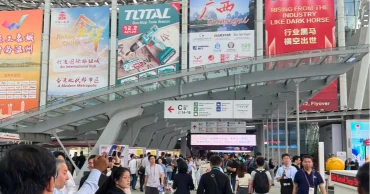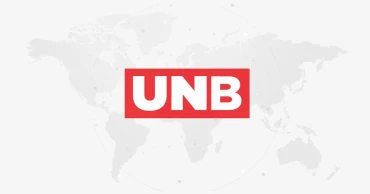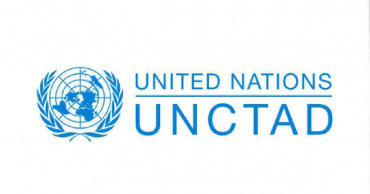international trade
Canton Fair 2024: Global Trade Epicenter Uniting Innovation and Commerce under One Roof
Each year, Guangzhou becomes the focal point of international trade through the China Import and Export Fair, famously known as the Canton Fair. The 135th session of Canton Fair officially opened its doors on April 15, 2024. This mega event serves as a vital platform for both established and emerging markets, promoting a diverse range of products from basic raw materials to advanced electronics and machinery.
Strategic Importance and Government Support
Zhou Shanqing, Director General of the Canton Fair Press Center and Deputy Director General of China Foreign Trade Center, detailed the extensive preparations that underscore the significance the Chinese government places on this event. Praised by Chinese President Xi Jinping through congratulatory letters and emphasized in the 2024 Government Work Report, the Canton Fair is crucial for stabilizing and expanding foreign trade. It serves as a strategic node for showcasing China's commitment to open economic policies and supporting global cooperation.
1 year ago
European Parliament's delegation on International Trade in city
A delegation of European Parliament's Committee on International Trade began their three-day visit here on Monday.
Heidi Hautala, MEP is leading the European Parliament delegation to Bangladesh.
Bangladesh and the European Union (EU) will discuss mainly trade related issues during the visit.
“They are interested in following trade relations between the EU and Bangladesh which are growing very strongly,” EU Ambassador to Bangladesh Charles Whiteley told reporters after his recent meeting with State Minister for Foreign Affairs Md Shahriar Alam
He said the delegation of the Members of the European Parliament (MEPs) will meet different ministers and other organizations.
Read:MEPs’ Bangladesh Visit: Trade issues to get priority
The EU ambassador said both sides will be looking at GSP regulation, which is their global regulation as they are very committed and interested on the trade front.
The State Minister said the delegation will visit privately owned factories and see Bangladesh’s development.
Bangladesh is already engaging in the GSP Plus issue which is a rather difficult process and the EU says it is very encouraging to see awareness in Bangladesh.
The EU is very happy that the Everything but Arms (EBA) has helped Bangladesh and thanked Bangladesh for the high quality clothing that they get from the country.
Bangladesh suggested an extension of the existing DFQF market access for Bangladesh in the European market by nine years beyond the three years of leeway after the graduation. Bangladesh can still enjoy the duty-free quota-free market access after 2026 up to 2029.
The EU’s Generalised Scheme of Preferences Plus (GSP+) gives developing countries a special incentive to pursue sustainable development and good governance.
Eligible countries have to implement 27 international conventions on human rights, labour rights, the environment and good governance.
The State Minister said there will be a wide-ranging discussion with the EU delegation.
Bangladesh draws worldwide attention for keeping up its growth momentum despite the global recession triggered by the pandemic and war, he said.
3 years ago
BBS, BFTI sign deal for launching PGD program in international trade
BRAC Business School (BBS) and Bangladesh Foreign Trade Institute (BFTI) have signed an agreement for launching a Post Graduate Diploma (PGD) programme in international trade and business.
Md. Obaidul Azam, Director of BFTI, and Dr. Sang Lee, Dean of BRAC Business School signed and exchanged the agreement confirming the initiation of the six-month-long PGD programme on Wednesday, said a press release.
The program is expected to launch the first cohort in July 2022.
Read: Alper-Doger index lists KUET Prof Alamgir
The agreement has been signed in continuation of a signed memorandum of understanding (MoU) by the respective heads of the institutions, Vice-Chancellor of BRAC University, Dr. Vincent Chang, and CEO of Bangladesh Foreign Trade Institute, Dr. Md. Jafar Uddin.
Commerce Minister Tipu Munshi, Senior Secretary of Ministry of Commerce Tapan Kanti Ghosh, Chairperson of the Board of Trustees of BRAC University Tamara Hasan Abed, and other important officials from the Commerce Ministry, BFTI and BRAC University were present on the occasion.
The two institutions had jointly developed the curriculum for the diploma program to fulfill the demand for up-skilling professionals engaging in international trade activities.
As Bangladesh prepares to graduate from its LDC status, international trade sectors are expected to face both challenges and opportunities in the competitive international marketplace.
The upcoming PGD program is designed to close the gap between international standards and Bangladesh’s current practices in international trade activities.
Read: HSC exams to be held with shortened syllabus, question paper
The diploma will deliver knowledge and skills to individuals working in, or planning to work in the foreign trade sector and enhance their professional skills needed to navigate the market for securing improved opportunities for the industries in Bangladesh.
In addition to the launching of the post-graduation diploma program, the two parties agreed to cooperate on research and the designing of other educational programs that will support industries and professionals in the international trade sector, mentioned the press release.
3 years ago
Britain's new trading scheme to benefit Bangladesh
The UK government has launched a new scheme that aims to drive trade with Bangladesh and other countries boosting jobs and growth.
The new trading rules will help countries come out of poverty and help British businesses and consumers at the same time, said the UK government.
The UK Developing Countries Trading Scheme (DCTS) is a major opportunity to grow free and fair trade with developing nations.
Read:Dhaka conveys protests to UK over human rights report
Javed Patel, acting British High Commissioner in Dhaka, said the proposed DCTS scheme signals the UK’s appetite to promote global free, competitive and fair trade, "as well as demonstrating our commitment to Bangladesh, by enabling Bangladeshi businesses to access the UK market more easily".
"Bilateral trade between the UK and Bangladesh stands at almost £4 billion and there is room for growth. I encourage businesses here in Bangladesh to contribute to this important consultation through their trade bodies," he said.
The proposed scheme would apply to 70 qualifying countries currently and include improvements such as lower tariffs and simpler rules of origin requirements for countries exporting to the UK, allowing countries to diversify their exports and grow their economies.
The UK currently operates a similar scheme rolled over from the EU, but as an independent trading nation can now take a simpler, more generous, pro-growth approach to trading with developing countries.
The proposed new UK scheme will mean more opportunity and less bureaucracy for developing countries, for example by simplifying rules of origin requirements or reducing tariffs on imports. For instance, this could mean lowering tariffs on products, including rice from Pakistan and trainers from Nigeria.
International Trade Secretary Liz Truss said trade fundamentally empowers people and has done more than any single policy in history to lift millions of people around the world out of poverty.
“Now the UK is an independent trading nation, we have a huge opportunity do things differently, taking a more liberal, pro-trade approach that leads to growth and opportunity.
“Countries like Bangladesh and Vietnam have proven it’s possible to trade your way to better living standards, and our new Developing Countries Trading Scheme will help others do the same," Truss said.
Read:Media freedom in Bangladesh under “pressure”, political freedom “restricted”: UK
Foreign Secretary Dominic Raab said that cutting tariffs for poorer countries enables them to trade their way to genuine independence -- "and I’m proud we lead the world in offering that opportunity".
Bangladesh and Vietnam have demonstrated that increasing trade through schemes like the UK’s DCTS helped them grow their economy, improve living standards, and drive down poverty, said the British High Commission in Dhaka on Tuesday.
Vietnam’s exports to the UK more than tripled between 2009 and 2019.
Over this period, the country achieved an average growth rate of more than 6%, while poverty rates plummeted from more than 20% in 2010 to an estimated 5.9% in 2020.
The UK's total imports from Bangladesh more than doubled between 2009 and 2019, during which time the country achieved an average growth rate of 6.6%. Extreme poverty rates more than halved from 1991 to 2016-17.
The UK government intends its new scheme to be the best in class, and has studied programmes in Canada, the US, Japan and the EU, before constructing an approach that takes some of the strongest elements of each and builds on them.
The consultation on the UK’s new scheme runs for eight weeks and seeks the view of all sectors of society, including businesses, the public, civil society groups, consumers, associations, partner governments and any other interested stakeholders.
Views will also be sought from businesses and stakeholders with an interest across the globe.
Read:Dhaka wants trilateral initiative from Moscow to resolve Rohingya crisis
The UK Developing Countries Trading Scheme will apply to 47 countries in the Least Developed Country Framework (LDCF) and 23 additional countries classified by the World Bank as low-income and lower-middle-income countries.
Other low-income and lower-middle-income countries are not included in the scheme because they benefit from preferential terms offered by free trade agreements with the UK.
Bangladesh and Vietnam reported changes in poverty are based on the international poverty line of $1.90 and $3.20, respectively, per person, per day in 2011 Purchasing Power Parity dollars.
4 years ago
COVID-19 drives large international trade declines
The value of global merchandise trade is predicted to fall by 5.6 percent in 2020 compared with last year, according to UNCTAD's latest nowcasts.
5 years ago
WTO DG candidate Liam Fox calls up FM
Dr Liam Fox, a UK-backed candidate for the post of World Trade Organisation (WTO) Director-General, on Saturday talked to Foreign Minister Dr AK Abdul Momen over phone.
5 years ago





.jpg)


